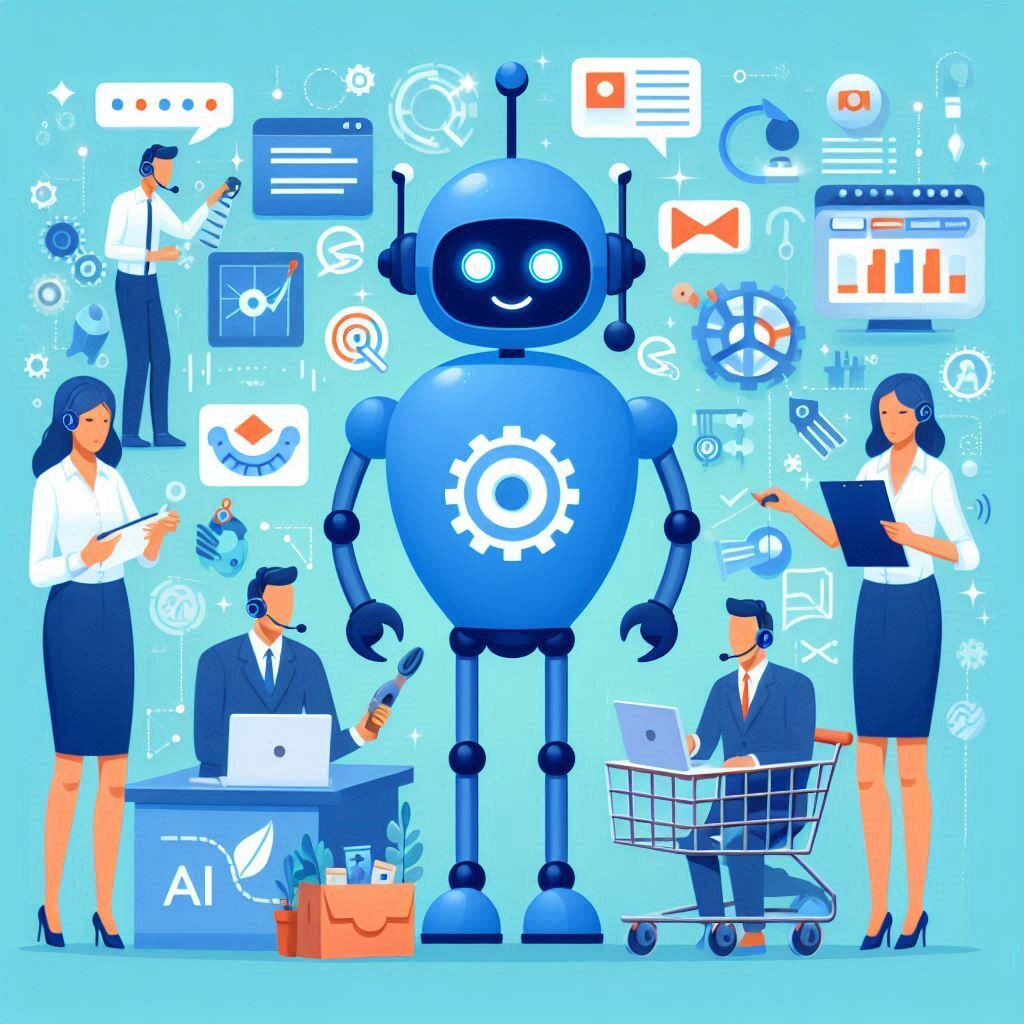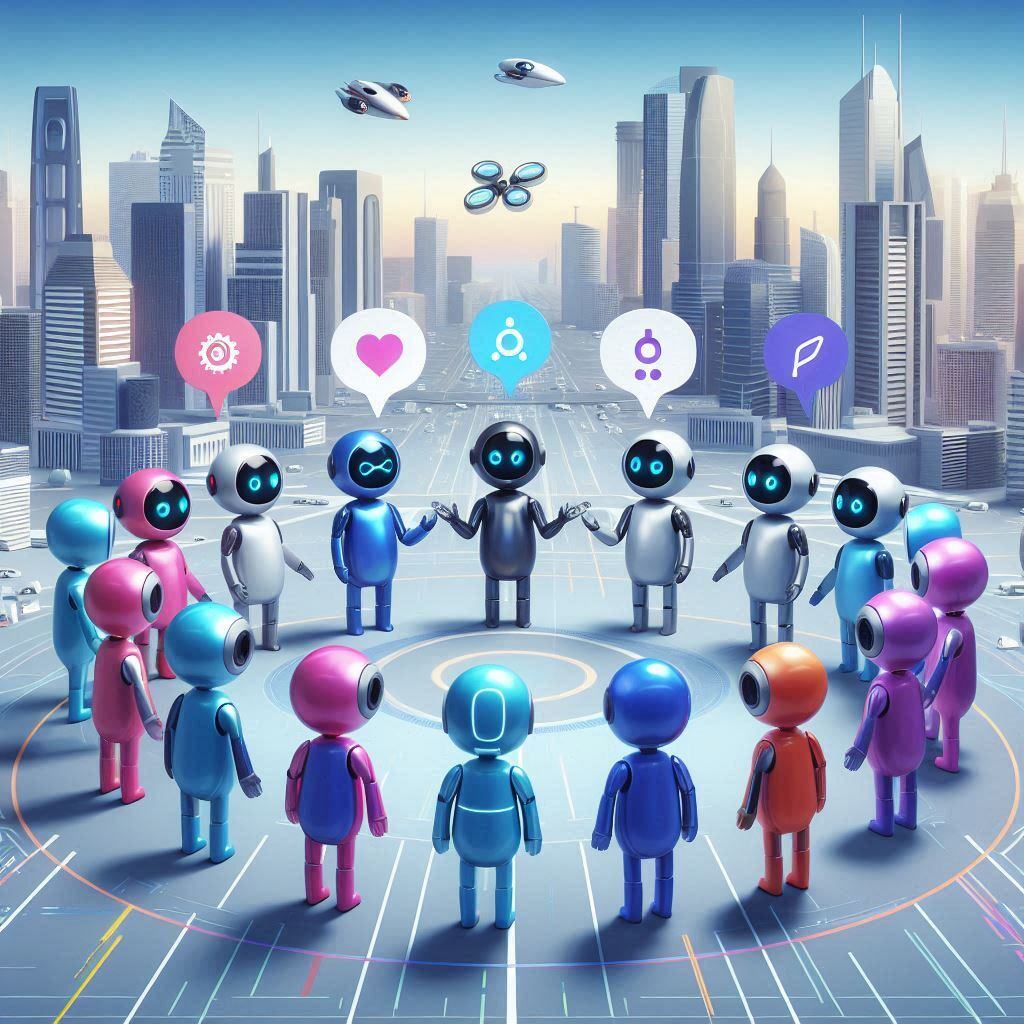AI Agents Examples: Use Cases Across Industries
AI agents are making a huge impact on how companies work, from automating everyday tasks to making better decisions with less manual effort. These...
Customize AI agents for your business needs with enhanced efficiency, personalized customer experiences, and improved decision-making.
Artificial Intelligence (AI) has rapidly evolved from a futuristic concept to a cornerstone of modern business operations. As AI continues to permeate various industries, the demand for AI systems that can adapt to specific tasks and environments is growing. This is where AI agent customization comes into play. AI agents are software entities capable of autonomous action, and customizing these agents to meet specific needs can unlock new levels of efficiency, personalization, and innovation.
In this blog, we'll delve into the intricacies of AI agent customization, explore its benefits across different sectors, and provide practical insights on how businesses can leverage this technology to stay ahead of the curve.
AI agent customization refers to the process of tailoring AI agents to perform specific tasks or operate within particular environments. Unlike generic AI models, which are designed to handle a wide range of tasks, customized AI agents are fine-tuned to excel in defined areas, making them more efficient and effective.
Behavior Modeling: Defining how an AI agent responds to various inputs and situations. This involves creating rules, learning algorithms, or neural networks that dictate the agent's actions based on its objectives.
Communication Protocols: Ensuring that AI agents can seamlessly communicate with each other and with external systems. Effective communication is critical for multi-agent systems where collaboration between agents is required.
Integration Capabilities: Customizing AI agents to integrate with existing software, databases, and cloud services. This enhances their functionality and ensures they can access and utilize external data sources.
Development Tools: Utilizing comprehensive development tools, including integrated development environments (IDEs), debuggers, and testing environments, to build and refine AI agents.
Scalability and Performance Optimization: Ensuring that customized AI agents can handle varying loads and perform efficiently as demand grows.
Customizing AI agents offers several advantages, particularly when it comes to addressing specific business challenges or operational needs. Here are some of the key benefits:
By tailoring AI agents to perform specific tasks, businesses can streamline operations and reduce the time and resources required to complete these tasks. For example, in manufacturing, AI agents can be customized to monitor production lines, identify defects, and make real-time adjustments, leading to improved productivity.
Customized AI agents can be programmed to analyze large amounts of data, identify patterns, and provide actionable insights. This is particularly valuable in sectors like finance, where AI agents can be used to predict market trends, assess risks, and make informed investment decisions.
In customer service, AI agents can be customized to interact with customers based on their preferences and past interactions. This level of personalization can significantly enhance customer satisfaction and loyalty. For example, AI agents in e-commerce can recommend products tailored to individual customer preferences, increasing the likelihood of conversion.
Customized AI agents can be designed to scale with business needs. Whether it's managing increased customer inquiries during peak seasons or expanding into new markets, these agents can adapt to new challenges and continue to perform effectively.
By automating routine tasks and optimizing processes, customized AI agents can lead to significant cost savings. Businesses can reduce the need for human intervention in certain areas, allowing employees to focus on more strategic tasks.
AI agent customization is being leveraged across various industries to solve complex problems and enhance operations. Let's explore how different sectors are benefiting from this technology.
In healthcare, AI agents can be customized to assist in diagnostics, treatment planning, and patient monitoring. For example, AI agents can analyze medical images to detect anomalies, recommend personalized treatment plans based on patient history, and monitor vital signs in real-time to alert healthcare providers of potential issues.
In the finance industry, AI agents are used to automate trading, manage portfolios, and assess credit risk. Customized AI agents can analyze market data, execute trades based on predefined strategies, and adjust portfolios to optimize returns while minimizing risk.
Retailers are using customized AI agents to enhance the shopping experience, from personalized product recommendations to automated customer support. These agents can analyze customer behavior, predict trends, and tailor marketing campaigns to individual preferences, leading to higher engagement and sales.
Manufacturers are leveraging AI agents to optimize production processes, monitor equipment health, and manage supply chains. Customized AI agents can predict when machinery is likely to fail, schedule maintenance, and adjust production schedules to minimize downtime and maximize efficiency.
In HR, AI agents can be customized to streamline recruitment, employee engagement, and performance management. For example, AI agents can screen resumes, conduct initial interviews, and assess candidate fit based on predefined criteria, reducing the time and effort required to find the right talent.
Customizing AI agents involves several steps, from defining the agent's objectives to deploying it in a real-world environment. Here's a step-by-step guide to help you get started:
The first step in customizing an AI agent is to clearly define its objectives. What specific tasks should the agent perform? What outcomes are you looking to achieve? For example, if you're customizing an AI agent for customer support, its objective might be to resolve customer inquiries quickly and accurately.
Choose the appropriate tools and frameworks for developing your AI agent. Popular programming languages for AI development include Python, R, and JavaScript. AI frameworks like TensorFlow, PyTorch, and Keras are widely used for building and training models. Additionally, consider using cloud-based AI services like AWS, Google Cloud AI, or Microsoft Azure AI for scalability and ease of deployment.
Based on the defined objectives, design the AI agent's architecture. Decide whether the agent will operate using a reactive, deliberative, or hybrid architecture. For example, a reactive architecture might be suitable for real-time decision-making, while a deliberative architecture could be better for tasks requiring complex planning and reasoning.
Training is a critical step in customizing an AI agent. Use your prepared data to train the agent, allowing it to learn patterns and adjust its behavior to achieve the desired outcomes. This step may involve using supervised, unsupervised, or reinforcement learning techniques, depending on the task at hand.
After training, it's essential to test and validate the AI agent to ensure it performs as expected. Conduct tests in various scenarios to evaluate the agent's accuracy, efficiency, and robustness. If the agent doesn't perform as desired, iterate on the design and retrain the model as needed.
Once the AI agent passes all tests, it's time to deploy it in a real-world environment. Monitor the agent's performance closely, especially in the early stages, to identify any issues or areas for improvement. Regular monitoring and maintenance are crucial to ensure the agent continues to perform optimally as conditions change.
While AI agent customization offers numerous benefits, it's not without challenges. Here are some key considerations to keep in mind:
The quality of the data used to train AI agents is critical to their success. Ensure that your data is accurate, relevant, and representative of the scenarios the agent will encounter.
When customizing AI agents, it's essential to consider the ethical and legal implications. Ensure that your agents comply with data privacy regulations and do not inadvertently introduce biases or unfair practices.
Integrating customized AI agents with existing systems can be complex, especially if those systems are outdated or not designed to work with AI. Plan for potential integration challenges and allocate resources accordingly.
As your business grows, the demand on your AI agents will increase. Ensure that your customized agents can scale effectively to handle increased workloads without compromising performance.
AI agent customization represents a significant opportunity for businesses to enhance efficiency, improve decision-making, and deliver personalized experiences. By tailoring AI agents to meet specific needs, organizations can unlock new levels of innovation and stay ahead in an increasingly competitive landscape.
Whether you're in healthcare, finance, retail, or any other industry, the ability to customize AI agents to perform specialized tasks will be a key differentiator in the years to come. Start exploring AI agent customization today and position your business for success in the AI-driven future.

AI agents are making a huge impact on how companies work, from automating everyday tasks to making better decisions with less manual effort. These...

What if you could teach AI to think like a specific expert, unlocking a whole new level of capability? Welcome to the world of role prompting, a...

Artificial intelligence is becoming increasingly essential for businesses looking to streamline their processes. One of the most powerful ways to tap...
Start your journey with Integrail

Try AI Studio by Integrail FREE and start building AI applications without coding.

NEW White Paper: Discover how AI Studio accelerates your workflows